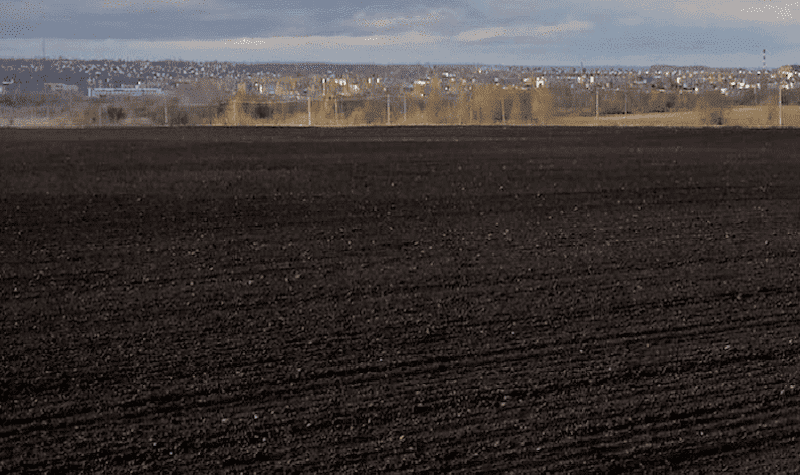The Richness of Ukrainian Soil: Exploring Chernozem, the Black Earth of Ukraine
Ukraine, known as the "breadbasket of Europe," owes its agricultural success to the remarkable richness of its soil. At the heart of this fertility lies Chernozem, the black earth of Ukraine. Chernozem, derived from the Russian words "cherno" meaning black and "zem" meaning earth, is renowned for its exceptional productivity and unique characteristics. In this blog, we will delve into the reasons why Ukrainian soil is so good, explore the defining characteristics of Ukrainian soil, and understand the historical significance of Chernozem.
Why is Ukrainian Soil So Good?
The quality of Ukrainian soil can be attributed to several factors. Firstly, the region benefits from a favorable climate, with a balance of rainfall and sunshine that nurtures plant growth. Additionally, the geographical location of Ukraine, with its vast expanses of flat land, provides an ideal environment for agriculture. The absence of significant natural barriers allows for unobstructed air circulation, ensuring the proper oxygenation of the soil. Furthermore, the presence of numerous rivers, including the Dnieper and the Danube, contributes to the natural irrigation of the land, replenishing the soil with essential nutrient from spring flooding and silt.
Characteristics of Ukrainian Soil
Chernozem, the black earth of Ukraine, possesses distinct characteristics that set it apart from other types of soil. One notable feature is its striking dark color, which gives the soil its name. This darkness is due to the high organic matter content, particularly humus, a decomposed organic material that enhances the soil's fertility. The dark color also contributes to the soil's ability to absorb and retain heat, making it ideal for agriculture in cooler climates, similar to the peace river region of Peace River in northern Alberta, Canada, another part of world known for its soil and climate.
Another distinguishing characteristic of Ukrainian soil is its exceptional moisture retention capacity. The fine texture of Chernozem allows it to retain water efficiently, ensuring a steady supply for plant roots during dry periods. This moisture retention ability minimizes the need for excessive irrigation, making Ukrainian soil more sustainable and environmentally friendly.
Furthermore, Ukrainian soil exhibits a favorable pH level, typically ranging from neutral to slightly alkaline. This pH balance creates an optimal environment for plant nutrient uptake and microbial activity, further enhancing the soil's fertility and supporting healthy plant growth I deal for grains and root vegetables like beets and carrots. The combination of these unique characteristics makes Ukrainian soil the best growing medium for agriculture and a crucial contributor to Ukraine's agricultural success.
The Importance of Soil Fertility in Ukraine
Soil fertility plays a pivotal role in Ukraine's agricultural sector, which is a vital component of the country's economy. The rich and productive Ukrainian soil enables the cultivation of a wide variety of crops, including grains, vegetables, fruits, and oilseeds. These crops not only meet the domestic food demand but also contribute significantly to Ukraine's exports, generating substantial revenue for the country.
Furthermore, the fertility of Ukrainian soil allows for sustainable agricultural practices. With proper management and conservation techniques, farmers can optimize crop production while minimizing environmental impact. The ability to maintain soil fertility ensures the long-term sustainability of Ukraine's agricultural sector, contributing to food security and economic stability.
Similarly, the Sicilian Purple cauliflower, known for its vibrant color and distinct taste, faded away as standard white varieties gained dominance.
The Historical Significance of Chernozem
Beyond its agricultural significance, Chernozem holds great historical importance. The fertile black earth has been a crucial factor in shaping the region's history and culture. Throughout the centuries, civilizations have flourished on the banks of the Dnieper River, harnessing the power of Chernozem to establish prosperous settlements.
The richness of Ukrainian soil attracted various cultures and invasions, leaving a lasting impact on the region. From the ancient Scythians and the Kievan Rus to the Mongol Empire and the Soviet Union, each civilization recognized the agricultural potential of Ukrainian soil. The historical significance of Chernozem is deeply intertwined with the cultural heritage and identity of Ukraine, making it an integral part of the nation's story.
Challenges in Maintaining Soil Fertility in Ukraine
While Ukrainian soil boasts remarkable fertility, it is not immune to the challenges that face the rest of the world. The intensive agricultural practices of recent decades, including the use of chemical fertilizers and mechanization, have put strain on the soil. Over time, these practices can deplete the organic matter content and disrupt the delicate balance of the ecosystem. Additionally, erosion caused by improper land management and deforestation poses a significant threat to soil fertility.
To address these challenges, sustainable soil management techniques are crucial. Conservation practices, such as crop rotation, cover cropping, and the use of organic fertilizers, can help maintain soil fertility and minimize environmental impact. Furthermore, raising awareness among farmers about the importance of soil conservation and providing them with access.
The richness of Ukrainian soil, particularly Chernozem, has been a cornerstone of the country's agricultural success and cultural heritage. The favorable climate, glacial history, and unique characteristics of Ukrainian soil contribute to its exceptional fertility, enabling high crop yields and sustainable agriculture. However, it is crucial to recognize the challenges that threaten soil fertility and take proactive measures to preserve this invaluable resource for future generations.



.png)
.png)
.png)

.png)